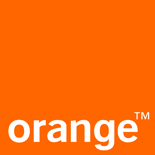Jobs in Morocco
Search over 153,924 available jobs now on Tanqeeb.
Explore Jobs By Category
Choose from the list
Looking For a Job
Upload your CV
Explore Jobs By Location
Choose from the list
Follow Multinational Companies
Jobs on Tanqeeb
Today Jobs
In Morocco
Find Candidates
You can publish your job advertisement through a simple, fast and advanced dashboard. Use the CV search service and search for employees by skills, profession or region, through an easy to use search page with advanced options.
Post a Job Now!
































